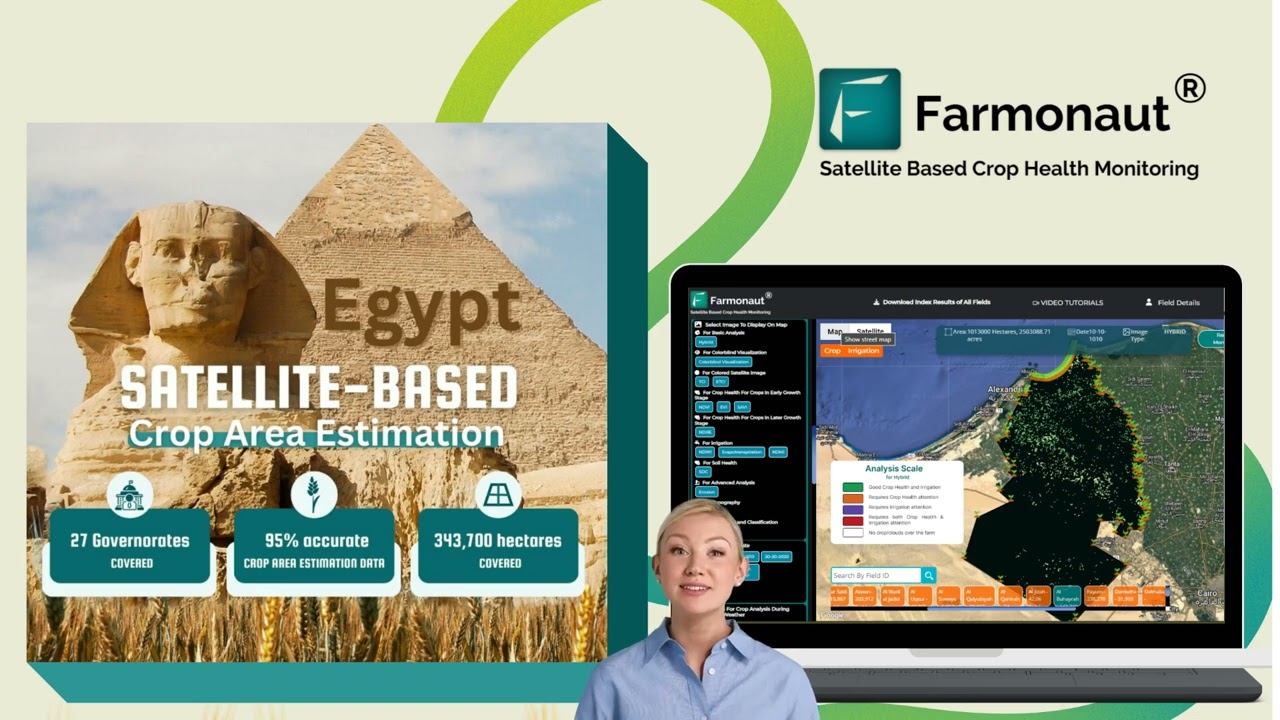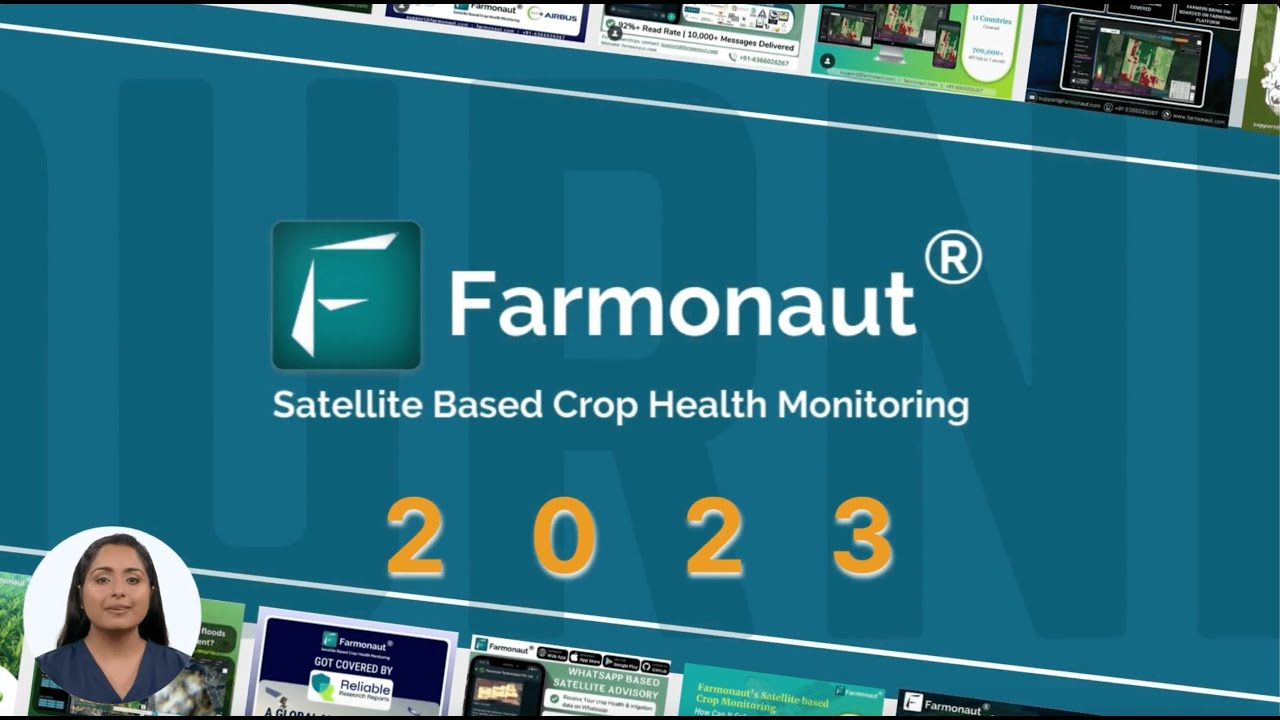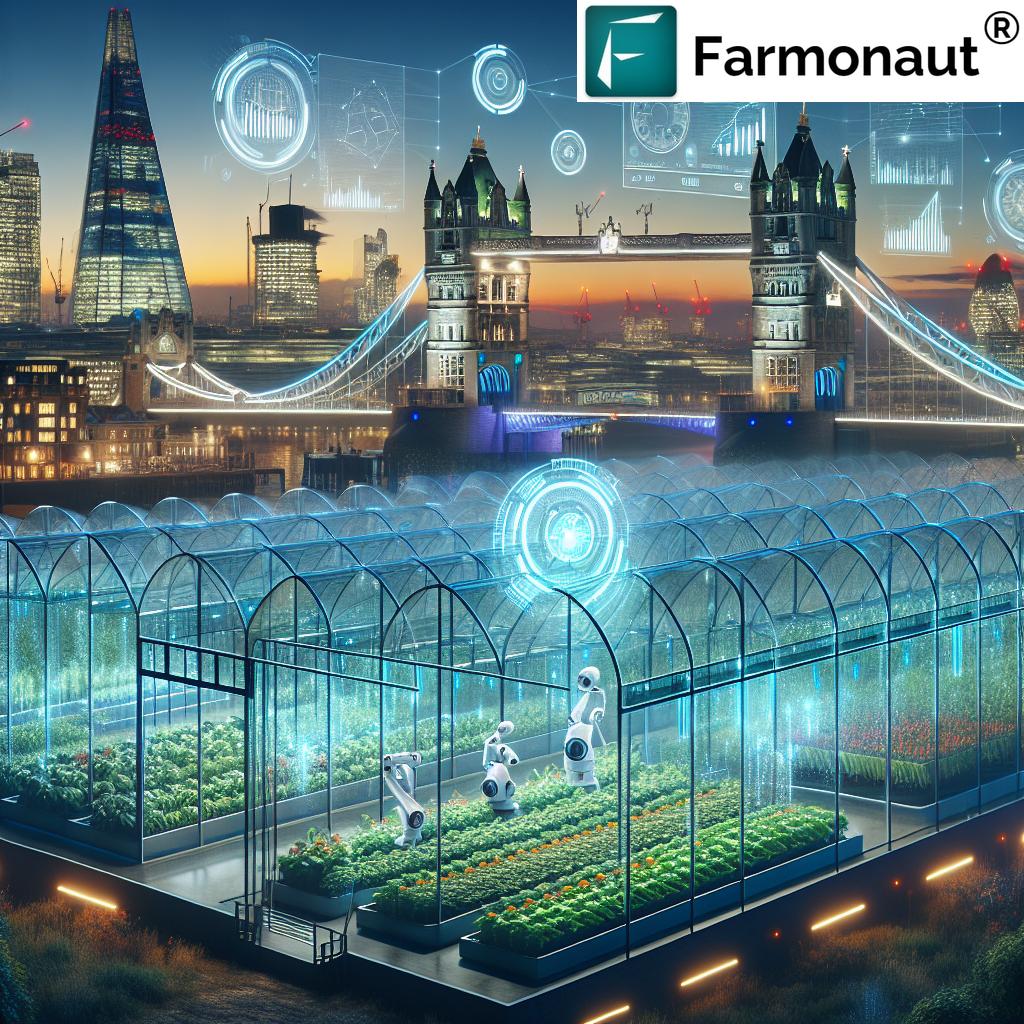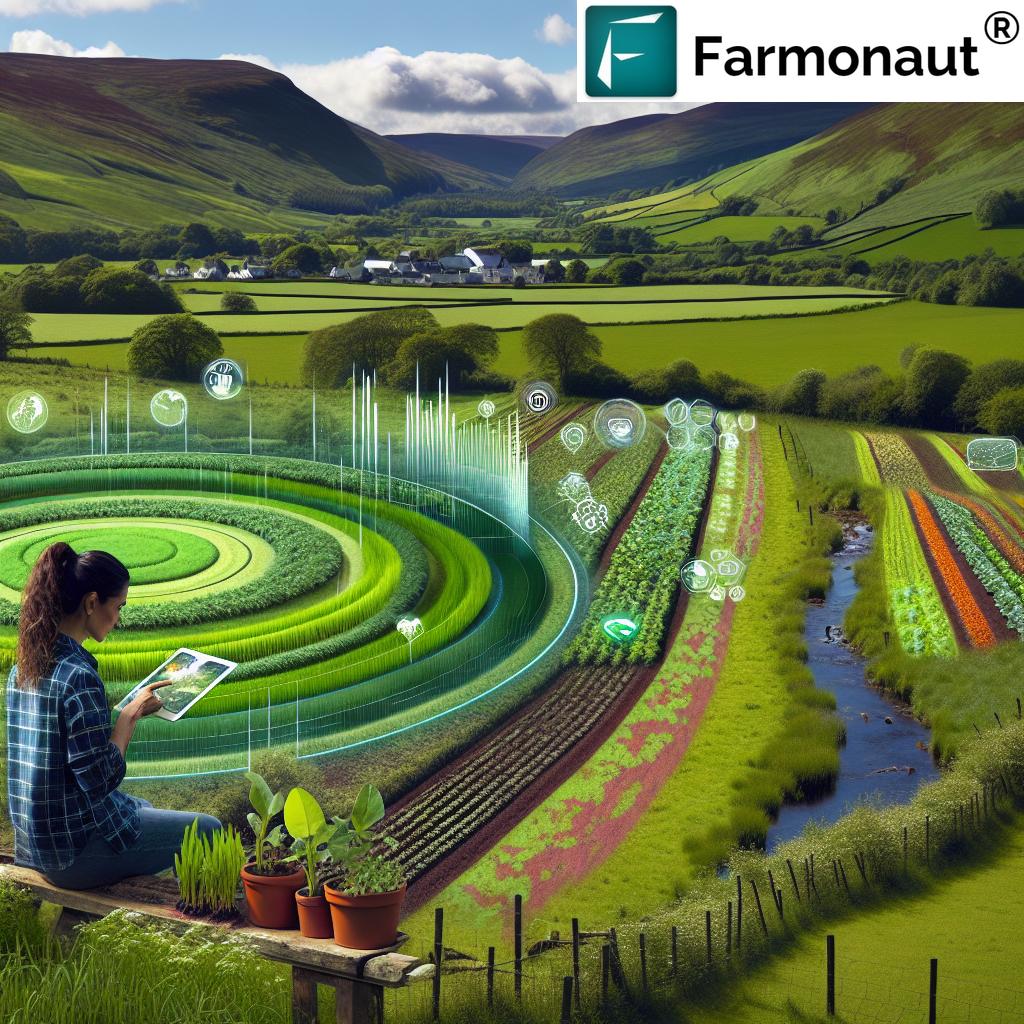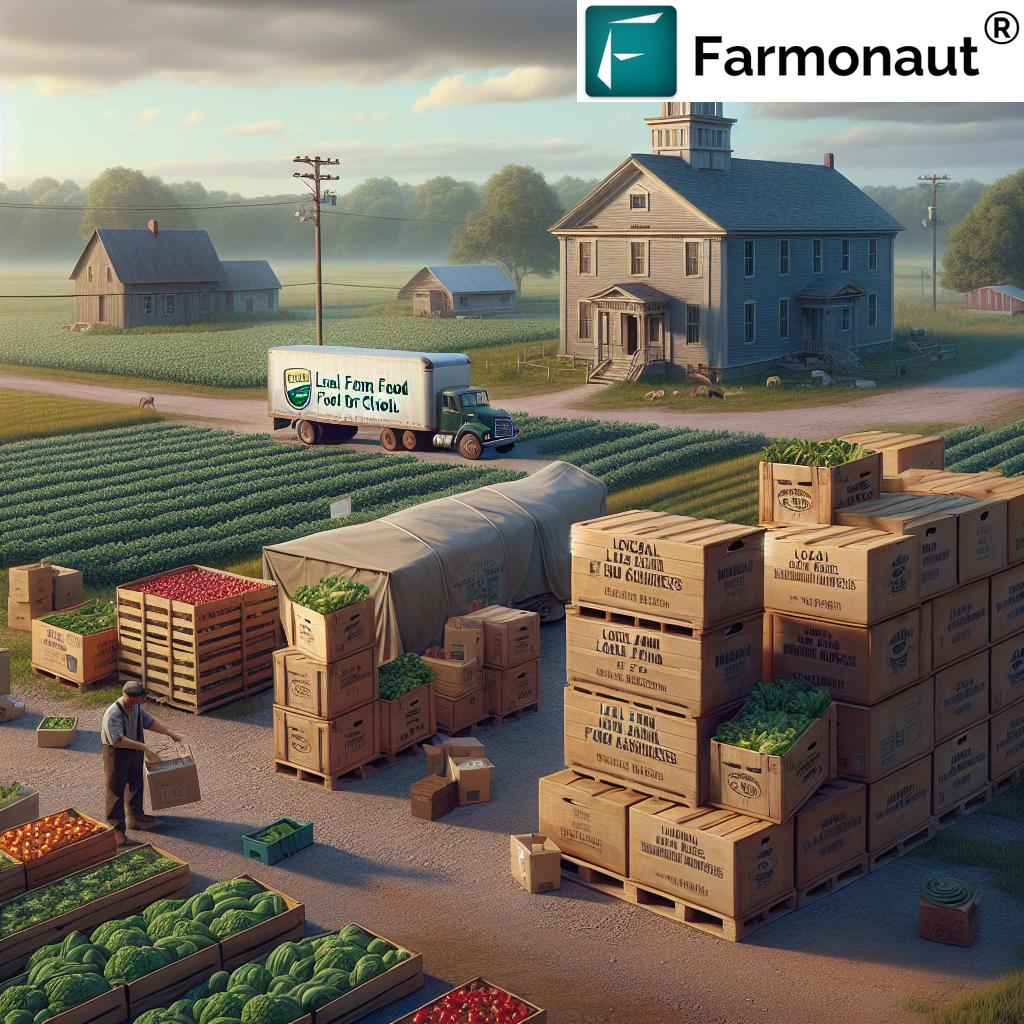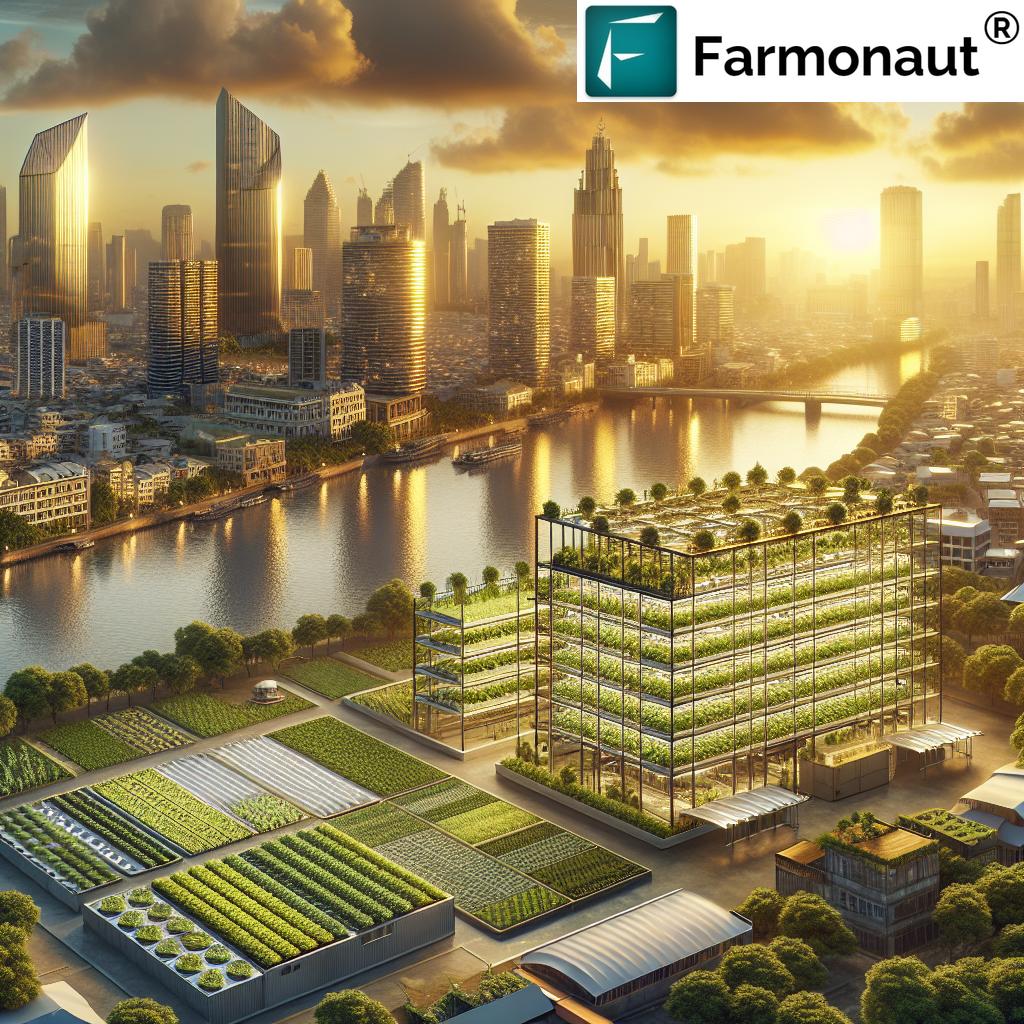Revolutionizing UK Agriculture: How Sustainable Agtech Solutions Are Transforming British Farms
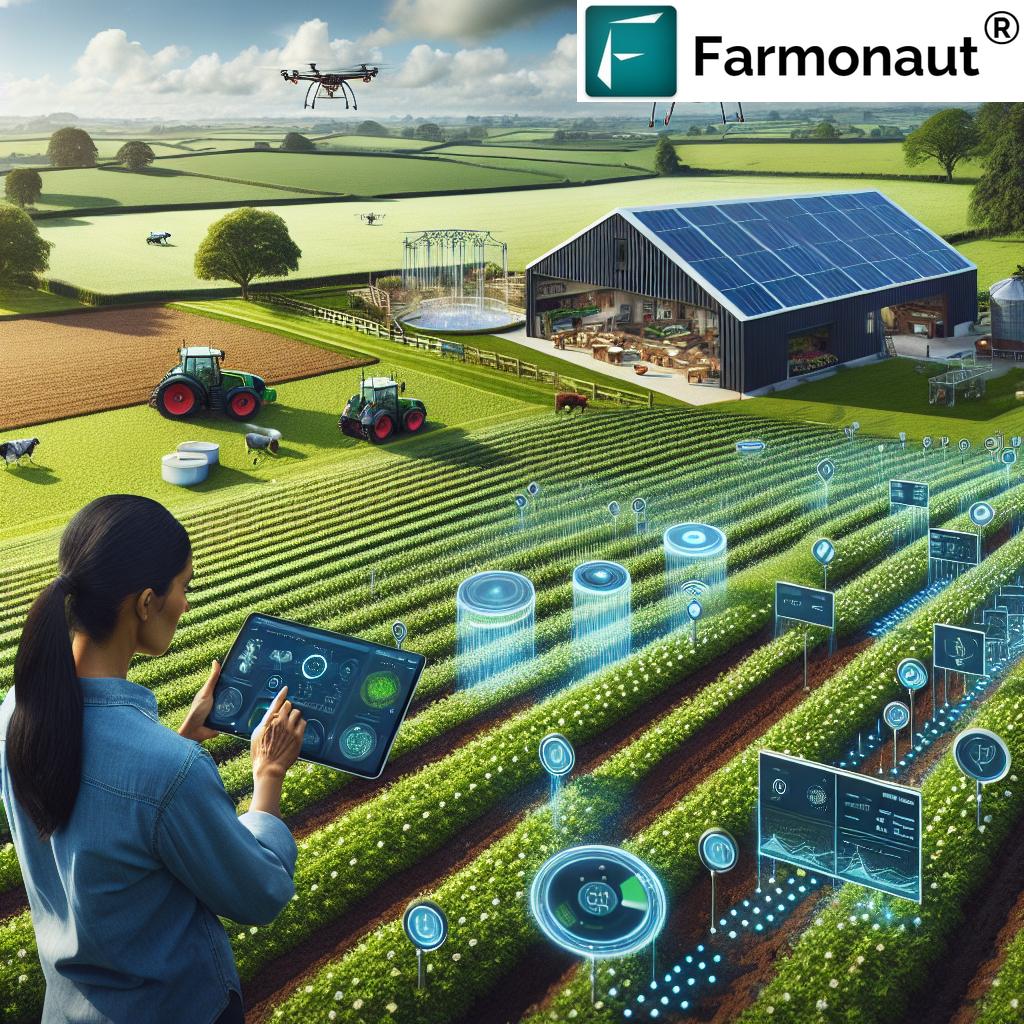
“UK farmers using sustainable agtech solutions have seen up to 20% increase in crop yields through precision farming techniques.”
In recent years, the agricultural landscape of the United Kingdom has been undergoing a remarkable transformation. As we navigate the challenges of climate change, resource scarcity, and growing food demand, sustainable agriculture technology is emerging as a powerful force in reshaping British farming practices. In this comprehensive blog post, we’ll explore how cutting-edge precision farming solutions and agritech innovations are revolutionizing the way UK farmers operate, enhancing productivity while promoting environmental stewardship.
The Dawn of Smart Farming in the UK
British agriculture is embracing a new era of technological advancement, where data-driven decision-making and intelligent systems are becoming the norm. Let’s delve into the key areas where sustainable agtech solutions are making a significant impact:
- Precision Agriculture: Utilizing GPS, satellite imagery, and IoT sensors to optimize crop management
- Smart Farm Management Systems: Integrating various farm operations through centralized digital platforms
- Water-Efficient Farming Techniques: Implementing advanced irrigation systems and moisture monitoring
- Regenerative Agriculture Methods: Adopting practices that improve soil health and biodiversity
- AI and Machine Learning: Leveraging predictive analytics for better farm planning and risk management
These innovative approaches are not just improving farm productivity; they’re also contributing to the sustainability of British agriculture, reducing its environmental footprint, and enhancing the quality of produce.
Precision Farming: The Cornerstone of Modern Agriculture
Precision farming is at the heart of the agricultural revolution in the UK. By employing a combination of satellite technology, drones, and ground sensors, farmers can now monitor their fields with unprecedented accuracy. This level of detail allows for targeted interventions, optimizing the use of resources and minimizing waste.
Key benefits of precision farming include:
- Improved crop yields through optimized planting and harvesting schedules
- Reduced use of pesticides and fertilizers
- Better water management and conservation
- Enhanced ability to detect and respond to crop diseases and pests
One company at the forefront of this revolution is Farmonaut, offering advanced satellite-based farm management solutions. Their platform provides real-time crop health monitoring, enabling farmers to make data-driven decisions that significantly improve their operations.
Smart Farm Management Systems: Integrating Technology for Holistic Farm Oversight
Smart farm management systems are transforming how British farmers oversee their operations. These comprehensive platforms integrate various aspects of farm management, from crop monitoring to livestock tracking, into a single, user-friendly interface.
Features of smart farm management systems include:
- Real-time monitoring of crop health and livestock well-being
- Automated record-keeping and compliance management
- Integration with weather forecasting for better planning
- Supply chain management and traceability solutions
By leveraging these smart systems, UK farmers are gaining unprecedented insights into their operations, leading to more efficient resource allocation and improved decision-making.
Water-Efficient Farming: Conserving a Precious Resource
“Adoption of smart farm management systems in British agriculture has reduced water usage by approximately 30% in some regions.”
Water scarcity is a growing concern globally, and the UK is no exception. Sustainable agtech solutions are playing a crucial role in helping British farmers optimize their water usage, ensuring that every drop counts.
Innovative water-efficient farming techniques include:
- Drip irrigation systems with smart controls
- Soil moisture sensors for precise irrigation scheduling
- Rainwater harvesting and storage solutions
- Drought-resistant crop varieties developed through advanced breeding techniques
These technologies not only conserve water but also contribute to better crop quality and yield, demonstrating that sustainability and productivity can go hand in hand.
Regenerative Agriculture: Nurturing the Soil for Future Generations
Regenerative agriculture is gaining traction in the UK as farmers recognize the long-term benefits of improving soil health. This approach focuses on practices that enhance biodiversity, increase carbon sequestration, and improve the overall resilience of agricultural ecosystems.
Key regenerative agriculture methods include:
- No-till farming to minimize soil disturbance
- Cover cropping to protect and enrich the soil
- Crop rotation to improve soil structure and nutrient content
- Integrated livestock management for natural fertilization
By adopting these methods, British farmers are not only improving their soil’s fertility but also contributing to climate change mitigation by increasing carbon sequestration in their fields.
The Role of AI and Machine Learning in British Agriculture
Artificial Intelligence (AI) and Machine Learning (ML) are revolutionizing British agriculture by providing farmers with predictive insights and automated decision-making capabilities. These technologies are enabling a new level of precision and efficiency in farm management.
Applications of AI and ML in agriculture include:
- Crop yield prediction based on historical data and current conditions
- Automated pest and disease detection through image recognition
- Optimized resource allocation using predictive analytics
- Robotic systems for planting, harvesting, and sorting
Farmonaut’s Jeevn AI Advisory System is an excellent example of how AI is being harnessed to provide personalized farm advisory services, helping UK farmers make informed decisions based on real-time data and expert analysis.
Sustainable Agtech Solutions: A Comparative Overview
To better understand the impact of various sustainable agtech solutions on British farms, let’s examine a comparative table:
| Agtech Solution | Primary Benefits | Key Technologies Used | Estimated Impact on Productivity | Estimated Environmental Benefits | Adoption Rate in UK Farms | Future Potential |
|---|---|---|---|---|---|---|
| Precision Farming | Yield Optimization, Resource Efficiency | GPS, Satellites, IoT Sensors | 15-20% increase | 30% reduction in chemical use | 40% | High |
| Smart Farm Management | Integrated Operations, Data-Driven Decisions | AI, Cloud Computing, Mobile Apps | 10-15% increase | 25% reduction in resource waste | 35% | High |
| Water-Efficient Techniques | Water Conservation, Drought Resilience | Smart Irrigation, Moisture Sensors | 5-10% increase | 30-40% water savings | 30% | High |
| Regenerative Agriculture | Soil Health, Carbon Sequestration | No-Till Equipment, Cover Crop Seeds | 5-15% increase (long-term) | Significant carbon reduction | 20% | High |
| AI and Machine Learning | Predictive Analytics, Automation | Deep Learning, Computer Vision | 10-20% increase | 20% reduction in inputs | 25% | Very High |
This table illustrates the significant potential of sustainable agtech solutions in transforming British agriculture, with each technology offering unique benefits and contributing to overall farm productivity and sustainability.
The Impact of Sustainable Agtech on Rural Communities
The adoption of sustainable agtech solutions is not just transforming individual farms; it’s having a profound impact on rural communities across the UK. By improving farm profitability and sustainability, these technologies are helping to revitalize rural economies and create new opportunities for young people in agriculture.
Benefits to rural communities include:
- Creation of high-skilled jobs in agtech and related fields
- Improved economic resilience of farming communities
- Enhanced food security and local produce quality
- Reduced environmental impact, preserving rural landscapes
As these technologies continue to evolve and become more accessible, we can expect to see even greater positive changes in rural Britain.
The Role of Data Analytics in Modern Farming
Data analytics is playing an increasingly crucial role in modern farming practices across the UK. By collecting and analyzing vast amounts of data from various sources, farmers can gain unprecedented insights into their operations, leading to more informed decision-making and improved outcomes.
Key applications of data analytics in agriculture include:
- Yield forecasting and crop performance analysis
- Soil health monitoring and nutrient management
- Weather pattern analysis for optimal planting and harvesting times
- Market trend analysis for better crop selection and pricing strategies
Platforms like Farmonaut are at the forefront of this data revolution, providing farmers with powerful analytics tools that transform raw data into actionable insights. Through their API, developers and businesses can integrate these advanced analytics capabilities into their own systems, further expanding the reach and impact of data-driven agriculture.
The Future of Sustainable Agriculture in the UK
As we look to the future, the potential for sustainable agtech to further transform British agriculture is immense. Emerging technologies and ongoing research promise even more innovative solutions to the challenges facing farmers today.
Some exciting developments on the horizon include:
- Advanced gene editing techniques for more resilient and nutritious crops
- Autonomous farming robots for labor-intensive tasks
- Blockchain technology for improved supply chain transparency and traceability
- Vertical farming and controlled environment agriculture for urban food production
These advancements, combined with the continued refinement of existing technologies, will play a crucial role in ensuring the long-term sustainability and productivity of UK agriculture.
Overcoming Challenges in Agtech Adoption
While the benefits of sustainable agtech solutions are clear, their adoption in the UK faces several challenges. Addressing these obstacles is crucial for the widespread implementation of these transformative technologies.
Key challenges include:
- High initial investment costs for some technologies
- Lack of technical knowledge and training among farmers
- Concerns about data privacy and security
- Limited rural broadband infrastructure
- Regulatory hurdles and policy uncertainties
To overcome these challenges, collaboration between government bodies, agricultural organizations, technology providers, and farmers is essential. Initiatives such as subsidies for agtech adoption, training programs, and improvements in rural digital infrastructure can help accelerate the uptake of these innovative solutions.
The Role of Education and Training in Agtech Adoption
As sustainable agtech solutions become more prevalent in British agriculture, the need for education and training in these new technologies is paramount. Universities, agricultural colleges, and industry organizations are playing a crucial role in preparing the next generation of farmers and agricultural professionals.
Key areas of focus in agtech education include:
- Data analysis and interpretation skills
- Understanding and operating advanced farming equipment
- Principles of precision agriculture and smart farming
- Environmental management and sustainability practices
- Digital literacy and cybersecurity awareness
By equipping farmers and agricultural workers with these skills, the UK can ensure that it remains at the forefront of agricultural innovation and sustainability.
Conclusion: A Sustainable Future for British Agriculture
The revolution in UK agriculture through sustainable agtech solutions is well underway, transforming the way British farms operate and paving the way for a more productive, efficient, and environmentally friendly future. From precision farming and smart management systems to water-efficient techniques and regenerative practices, these innovations are addressing the pressing challenges facing modern agriculture.
As we’ve explored in this blog post, the benefits of adopting these technologies are manifold, ranging from increased crop yields and resource efficiency to improved environmental stewardship and rural economic development. Companies like Farmonaut are at the forefront of this transformation, providing farmers with the tools and insights they need to thrive in this new era of agriculture.
While challenges remain, the potential for sustainable agtech to revolutionize British farming is immense. By embracing these innovations and continuing to invest in research and development, the UK can ensure a resilient, productive, and sustainable agricultural sector for generations to come.
As we move forward, it’s clear that the future of British agriculture lies in the intelligent application of technology, data-driven decision-making, and a commitment to sustainable practices. The revolution is here, and it’s transforming our farms, one field at a time.
FAQ Section
Q: What is sustainable agtech?
A: Sustainable agtech refers to agricultural technologies and practices that aim to increase productivity while minimizing environmental impact. This includes precision farming, smart farm management systems, water-efficient techniques, and regenerative agriculture methods.
Q: How is precision farming benefiting UK farmers?
A: Precision farming helps UK farmers optimize resource use, increase crop yields, reduce input costs, and minimize environmental impact through targeted application of water, fertilizers, and pesticides based on detailed field data.
Q: What role does AI play in modern agriculture?
A: AI in agriculture enables predictive analytics for crop yield, automated pest and disease detection, optimized resource allocation, and robotic systems for various farming tasks, leading to increased efficiency and productivity.
Q: How are water-efficient farming techniques helping British agriculture?
A: Water-efficient techniques such as smart irrigation systems and soil moisture sensors are helping British farmers conserve water, improve crop resilience to drought, and maintain productivity in the face of changing climate conditions.
Q: What is regenerative agriculture, and why is it important?
A: Regenerative agriculture focuses on practices that improve soil health, increase biodiversity, and enhance carbon sequestration. It’s important for long-term sustainability, climate change mitigation, and maintaining soil fertility for future generations.
Q: How can farmers access sustainable agtech solutions?
A: Farmers can access sustainable agtech solutions through various providers, including companies like Farmonaut that offer satellite-based farm management tools. Many solutions are available as mobile apps, web platforms, or integrated systems that can be tailored to individual farm needs.




